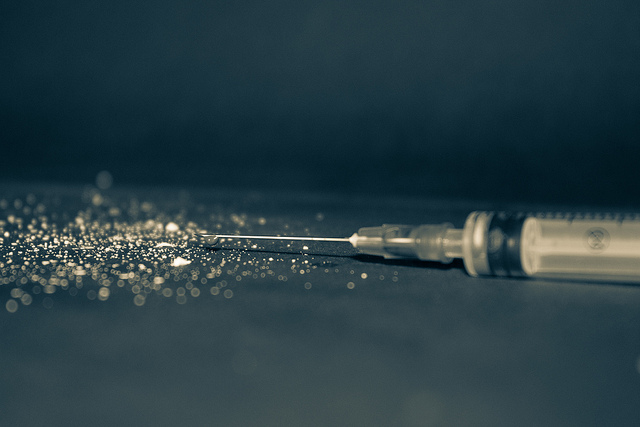Q. I was in a mindful, beautiful, spiritually fulfilling relationship with the love of my life for 3 years. It feels like it has been destroyed beyond repair.
I’m a recovering drug addict—she has always been supportive of me as long as I stayed honest with her. It was hard for me to be honest with her about the drugs in fear of hurting her or seeming weak. She found out I had been using, and I had lied about it, so we’re now both heartbroken. I’ve been sober and clean for about a month now. The sick and regret I feel overwhelms me on a daily basis. Just hope we can start over some day. I’m not sure what I’m asking, but I just feel absolutely lost.
A. Dealing with heartbreak—in addition to your work in recovery—is an immense struggle, no question.
Firstly, heartfelt congratulations on your sobriety. I hope that you are still in recovery and progressing with your addiction-free life. I know it’s hard, and often it feels like reality is a poor substitute for the euphoria we feel from our drug of choice. Of course, by now you likely realize that living life awake and aware is the better path—and well worth the struggles we may encounter along it.
Secondly, when a close relationship ends, we are often left with searingly painful memories of the positive times with our partners, peppered with the incessant questions about why it all had to end. In your case, you may know why it ended, but it doesn’t make the pain any less.
As you likely know, there are several specific elements of recovery that an individual needs to experience in order for him or her to emerge from addiction as a whole and healthy human being. What you may not realize is that these elements also apply to healing from heartbreak.
Hope. At the forefront of all recovery is hope. It is essential for all of us to believe that recovery is possible, and that a productive, functional life is in the future. When our hearts have been broken, the same applies. We must remember that there is someone out there for us—right now. It’s our job to create the foundation of self that will allow us to meet our future beloved.
Holistic healing. In order for recovery to be successful, the individual’s mind, body and spirit must be taken into account. How much time are you spending celebrating your self? Are you creating the foundation necessary to build a love that will last? It may not be this woman—that story may be at its end. But that doesn’t mean your story is over. If you want that kind of love—and you don’t want to repeat the same behavior—your base of self must be sturdy and solid. (Remember that when things stay the same, they stay the same.) That begins with self love and leads to…
Self-direction/Self-agency. We need to take action as part of our own, person-driven recovery. Spending time developing self-love and care allows you to show up in the world as a full being, capable of negotiating life’s ups and downs.
Varied pathways. Because we have unique sets of backgrounds and characteristics, we need flexibility in how we approach our recovery. Of course, substance abuse is best handled with abstinence. Our loving hearts, however, can handle much more imaginative ways to heal. Ask yourself what self-celebratory events and actions bring you joy. Do one of these at least once a day, even for a few minutes. Create and execute your solitude practice in any way that thrills you. It’s an essential tool for self-development.
Community, Familial and Peer Support. Recovery is much more effective and sustainable when we have a support system in place throughout the process. These systems can be therapy support groups, community centers, religious or spiritual groups, family and friends, companions and peers in recovery. Drugs, heartbreak—it doesn’t matter, we need to be able to lean on others for support and encouragement. Find your people.
I know the pain of ending an addiction while experiencing the end of a relationship. It can be monstrously hard. Now more than ever you need to turn inward and heal. Ask for help even if you think you don’t need it. (“Help” can be getting coffee with a friend or even volunteering at a food kitchen.) Counseling or therapy is a must. A good therapist will meet you where you are without judgment. She or he will offer tools to assist you in managing both your sobriety and your feelings of being “sick” and “lost.”
Above all, be gentle with yourself. Give yourself time to tear down the structure of the self that was not working for you and construct a new being—your highest self.
Happy loving!
.
Author: Rachel Astarte
Editor: Yoli Ramazzina
Photo: Flickr/Cristian C



Read 0 comments and reply